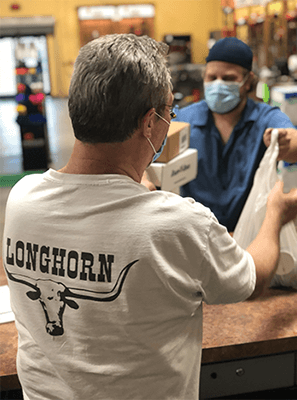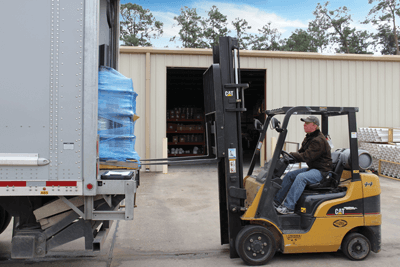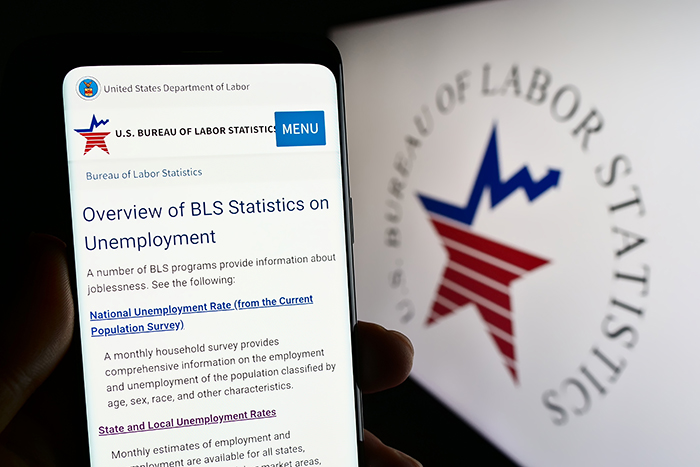It’s easy for landscape and irrigation contractors to foster strong relationships with their clients. They connect with them regularly on the job and depend on good communication with them to succeed. When that relationship is strong, it can be easier to do solid work, even when dealing with obstacles.
The same is true of the connection between contractors with their vendors. It’s not just about purchasing products and getting the best rates. It’s a partnership that shares expertise and insight, and can often save the contractor money. As projects are planned, contractors should be able to rely on a vendor to act as backup to help make good product choices and to make sure those products work correctly.

“When it comes time to get them delivered, we’re there on site, helping the contractors to put them in,” says Wayne McFarland, operations manager at ASP Enterprises. Because ASP is knowledgeable about its products, it often has the expertise to troubleshoot problems that come up. The company supplies hardscape, stormwater management, erosion control and landscaping products, among others. Sometimes a client is able to stay on top of knowing exactly which products they need. Other times, it’s the result of a surprise at the job site. Either way, “They call us and we make a recommendation,” McFarland says.
ASP does more than simply supply the products to get the work done. They’re seen as a partner in making sure contractors get what they need and that the job goes smoothly. “The phone rings, the salesman pops out to the job to recommend a product, and within an hour or the same day they’ll have the product there and they can keep building, keep moving on,” says McFarland. Timing is everything when getting supplies to a job site, and staying in communication with vendors throughout the project can keep things running on schedule.
This is just one example of how dealers and distributors work with irrigation and green industry contractors to help them succeed. Here are some tips and advice distributors offer contractors to keep these working relationships strong.
1. Create strong relationships

Everything starts with developing a connection with your vendor beyond just being the person you buy parts from, says Chad Fisher, sales manager for Longhorn Inc., an irrigation materials and outdoor lighting supply company in Dallas.
“It’s all built around the relationship,” Fisher says. “Once you have the relationship in place, you know there’s communication and some mutual respect and understanding.”
That can mean checking in on a contractor with a site visit to see where they are with a particular project or just “listening and finding out what the guy needs and how we can better serve him.”
Keeping those communication lines open will help a distributor get to the bottom of an issue quickly, whether it’s pricing, service or application, he says.
Talking about the issues a contractor is facing is a great way to take those relationships past the stage of just buying parts, Fisher says. Once you team up to take on a problem for a homeowner, it’s difficult to come away without thinking of the vendor as a friend or partner in the industry.
McFarland also puts a lot of weight into the power of a strong relationship. “The more you have a relationship with someone, the more you’re going to trust them,” he says.
2. Understand the value-add
When ASP consults with clients, it often trains them on new products and specifies products for job sites. McFarland encourages contractors to call him before installing new products.
“When we sell a product, especially one that a contractor has never seen before, we want to be on the job site that first day, helping them put it in properly,” says McFarland.
If products aren’t installed properly, it will often not perform as expected and cause issues for the contractor. To avoid problems or customer disappointment down the road, he suggests consulting with a supplier on installation trips, even if the job is running on a tight timetable.
 A value-add can also be working with a customer to make certain that a tough-to-find needed part is available or ready earlier than another source can get it, Fisher says.
A value-add can also be working with a customer to make certain that a tough-to-find needed part is available or ready earlier than another source can get it, Fisher says.
Sometimes the added value is less tangible and more based on experience. One benefit to working with a distributor is the ability to take advantage of expertise from across different parts of the industry, says Fisher. Longhorn leverages that when possible to get the best information on various parts from pumps to landscape lighting to central control.
“We’re able to shift around and let (contractors) work with a guy who specializes in that area,” Fisher says. “We’ve got guys who are experienced all across the board in the industry.”
With a broader range of expertise available, a distributor can find a solution the contractor hadn’t yet considered.
“Sometimes we can think outside the box with those experts in different fields and get them a solution that will work for their problem or application on the job site,” Fisher says. A distributor can take a look at a contractor’s situation from a different perspective and suggest a product that might be a better fit for the customer’s needs.
3. Good communication and project scheduling
McFarland recommends that contractors stay in close contact about their timelines to ensure that the materials arrive on time and to avoid delays.
“We have to deal with factories, which are going to just-in-time delivery,” he says. “They don’t have a big, huge inventory. When I order something from the factory, it’s typically a seven- to 10-day lead time. If we have a special order, we beg contractors to tell us when they’re going to start so we can have it here for them.”
Overcommunication is the best approach, especially when a contractor has an issue, Fisher says. Use different communication methods across text, email and phone calls to make sure the vendor knows what you need and when you need it. Distributors know that they need to respond to a customer’s messages as quickly as possible to get a problem resolved and are often working on a solution in the background as soon as the message is received.
“We try to be mindful when we’re dealing with the customer to be as concise as possible and reply as promptly as possible so they have all the details as quickly as they need them,” he says. Sometimes that means a quick note back and forth asking for clarification on specific items. With the specifics in hand, vendors can get information back to the customer so they can decide what the next action item is.
4. Understand suppliers’ costs
Contractors sometimes underestimate the costs of distributors’ inventory and overhead, yet it’s part of the value that they provide. “We have what we consider to be a huge inventory, so we have to make a certain margin just to cover our expenses every month,” McFarland says.
 ASP helps contractors save money by ordering in bulk, warehousing products and spreading shipping costs across their customers. When the distributor brings in a truckload of products, the customer doesn’t have to pay freight on every single one, Mc- Farland says. Without a local supplier, the contractor would have to call the manufacturer directly and pay higher freight rates. “With us ordering it, there’s value and much lower freight, because we can share it among all the jobs,” he says.
ASP helps contractors save money by ordering in bulk, warehousing products and spreading shipping costs across their customers. When the distributor brings in a truckload of products, the customer doesn’t have to pay freight on every single one, Mc- Farland says. Without a local supplier, the contractor would have to call the manufacturer directly and pay higher freight rates. “With us ordering it, there’s value and much lower freight, because we can share it among all the jobs,” he says.
McFarland says he tries to impress upon his customers that ASP is more than just a middleman.
“We want the contractor to see the value that we’re bringing,” he says. While a middleman just marks up a product and sells it, distributors bring value through service on the job site.
Fisher says to keep in mind that vendors are dealing with similar costs and concerns, too.
“Distributors are dealing with overhead, insurance and price increases just like you are,” he says. It goes back to finding solutions for customers that are mutually beneficial. “We’re in business together.”
5. Get the whole quote
When contractors are looking at cost, it’s important to keep the earlier value-adds in mind, says Fisher.
As the contractor, think “What am I really getting for the price?” he says. Will the contractor be there for you when an issue comes up? Is the distributor a reliable source for the parts you need most often?
McFarland recommends contractors keep distributors in the loop when they’re bidding on jobs. They should carefully read the cost estimate, and make sure they know which products are being included in the bid. Double-checking availability and cost with the distributor before taking the bid to the customer can prevent confusion as the job is completed.
McFarland encourages customers to stick to the terms of their accounts as best they can. It helps the supplier and keeps the relationship strain-free.
If customers are running into issues with bills, especially in relation to dealing with the shifting market this year, it’s important to talk with your sales rep, Fisher says. Tell them what you’re going through and ask if there’s anything that can be worked out. When the communication is open, they’ll always try to find a solution that works for both parties.
“It’s hard to work with them when the communication is not there,” Fisher says. “We really want to help the customer when we can and work through these things.”





